A nickel sheet is a thin, flat metal shape with uniform thickness. Nickel sheets are made from bullets or ingots of pure nickel. They are also made from nickel alloys. Nickel sheets are thicker than foil while thinner than nickel plates, varying between 0.006 inches and 0.250 inches. Read More…
Metal Technology specializes in fabricating products from high-temperature and corrosion-resistant metals. We can be contacted for your stainless steel, nickel, inconel, titanium, molybdenum, and zirconium needs and more. We have been in business for nearly 40 years providing standard and custom metal products and specialty metal tubing with extreme precision.
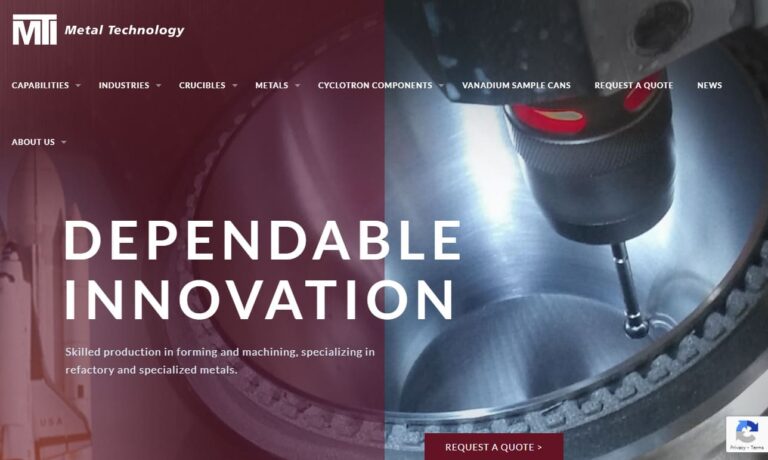
Since 1986 Magellan has been serving the global aerospace, oil & gas, power generation, petrochemical, bio-medical, pharmaceutical and other high tech manufacturing industries. Suppliers of nickel alloys, titanium, stainless steel and duplex alloys throughout the United States and in over 45 countries.
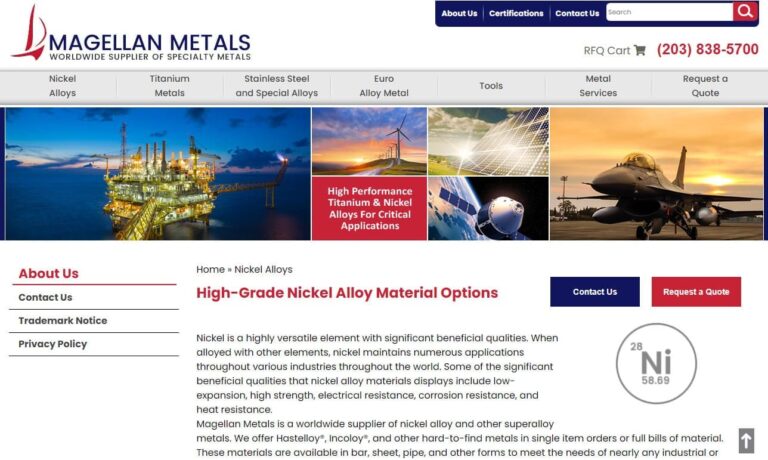
Sierra Alloys is a manufacturing service center specializing in titanium, PH grades of stainless, VAR aircraft alloy steels and nickel based alloys. Sierra's in-house forging and hot rolling equipment serves to meet and exceed the most stringent customer requirements. We have over 30 years experience.
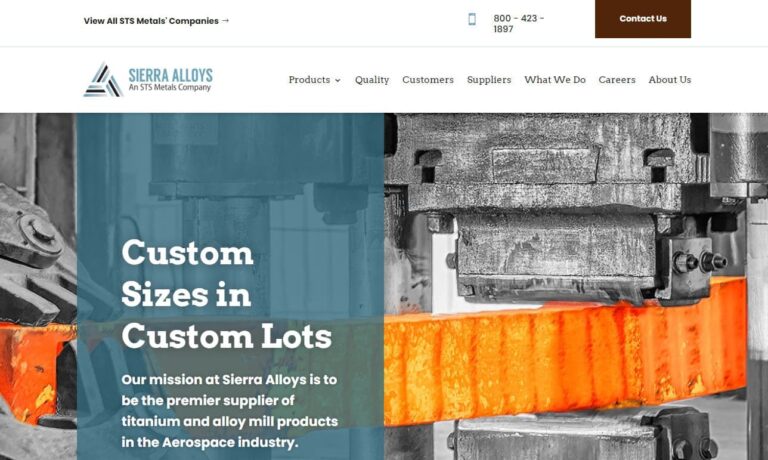
TW Metals provides a variety of nickel products including nickel tubing, pipes, and bar rod wire. Our nickel based alloys offer high strength and heat resistance and can be used in contact with fluorine, hydrofluoric acid, hydrogen fluorine, or other derivatives. TW Metals stock seamless nickel tubing and pipes for both aerospace and commercial applications.
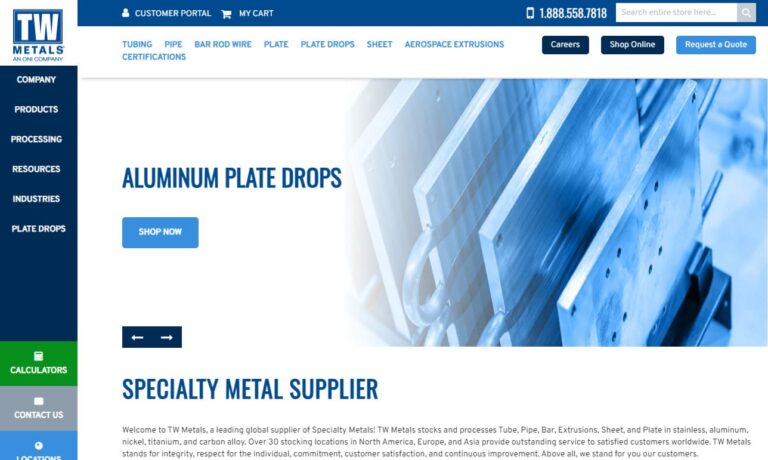
More Nickel Sheet Suppliers
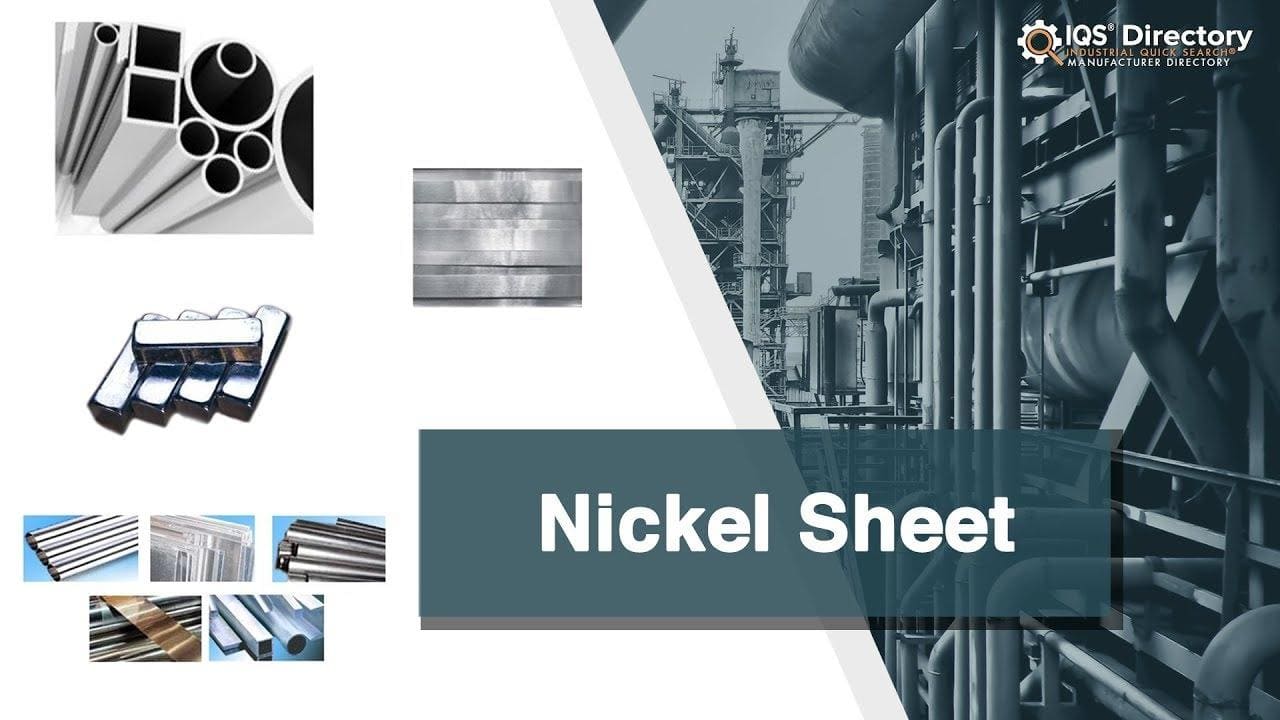
What is a Nickel Sheet?
Nickel sheets are ideal stock forms because they have standardized measurements. This allows manufacturers to plan for efficient storage, transport, and secondary processing. Nickle is are ductile, malleable, and the sheets are very thin. This means it is easy to fabricate nickel sheets into specific shapes while maintaining the integrity of the material.
Nickel material is incredibly useful in sheet form, because it’s features include ferromagnetism, hardness, corrosion resistance, and electrical and heat conductivity. When buying nickel sheets, it is crucial to consider the specific alloy being usedbecause chemical, physical, and machining properties may vary.
The Process of Nickel Sheet Forming
Before being made into sheets, nickel material is mined from the earth. Nickel is mined through hydrometallurgy or pyrometallurgical extraction. The nickel ore extracted is then refined through roasting and reduction processes until reaching the desired purity. Commercial grade nickel sheets contain 99.6% nickel. Some nickel alloys contain as little as 32.5% nickel.
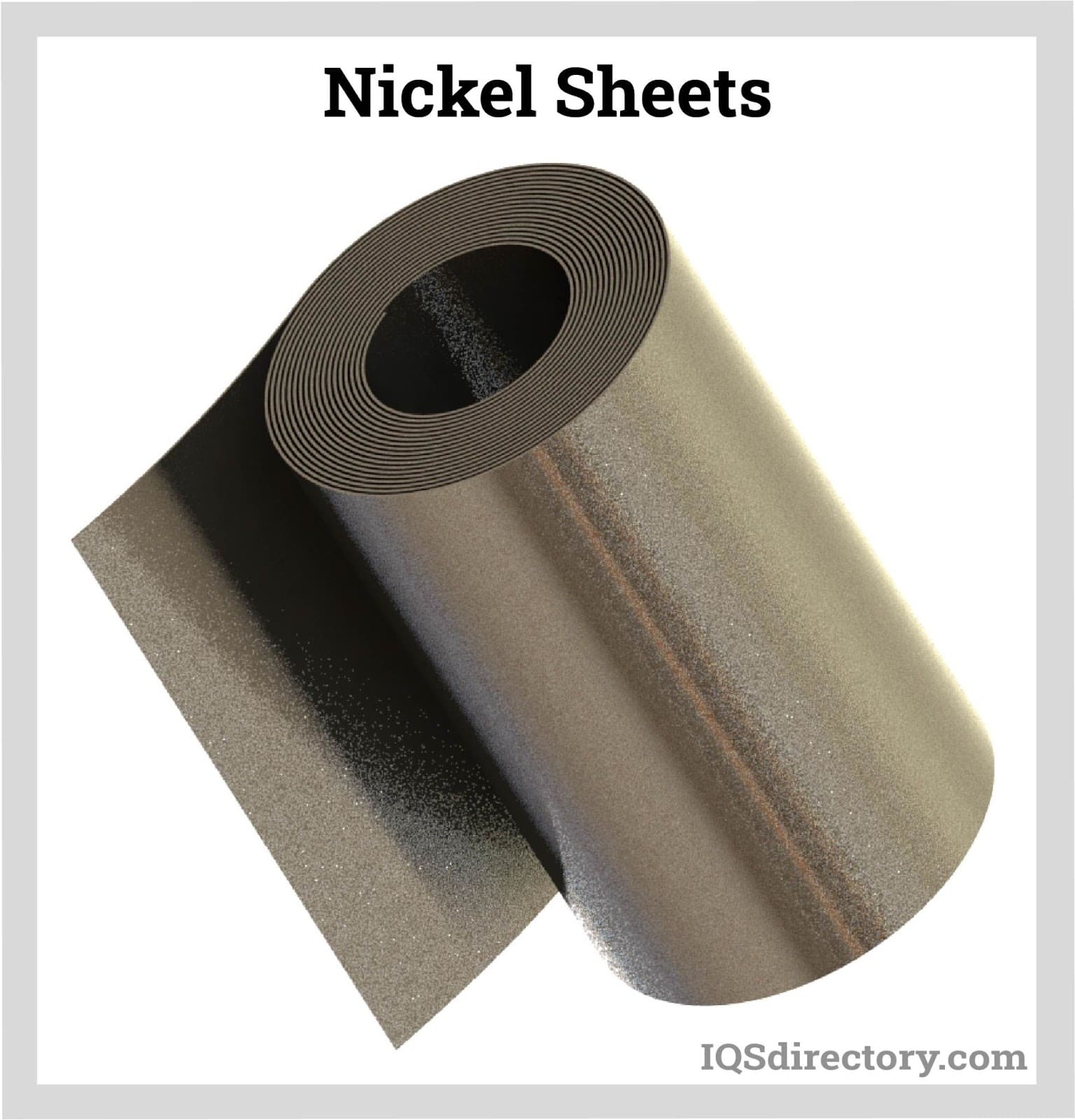
Then the nickel (or the alloy) is formed into billets, ingots, bars, or other shapes that will formed into sheets. There are numerous processes used to produce nickel sheets. These include casting, extrusion, cold rolling, hot rolling, and drawing. The most common technique is hot or cold roll forming. In roll forming, the stock nickel is fed through a pair of rollers that compress the nickel metal into a thin sheet. The compressed nickel material may be heated or left at room temperature.
To achieve an accurate and consistent thickness, it may be necessary to use several rollers or many runs over the same rollers. To determine when this is necessary, Manufacturers should consider the nickel sheet’s intended purpose. Carefully evaluate the nickel sheet's thickness, gauge, length, breadth, and possible consequences of a secondary run.
After defining a purpose for your nickel sheet, the thin planes may undergo an assortment of operations. These include folding, punching, stamping, slitting, cutting, metal spinning, and other fabrication techniques that will produce a finished product.
Types of Nickel Sheets
The different types of nickel sheets include:
Hastelloy C-22 Sheets
Hastelloy C-22 sheets are made from a versatile nickel chromium molybdenum tungsten alloy. They are resistant to various industrial chemicals and easy to weld.
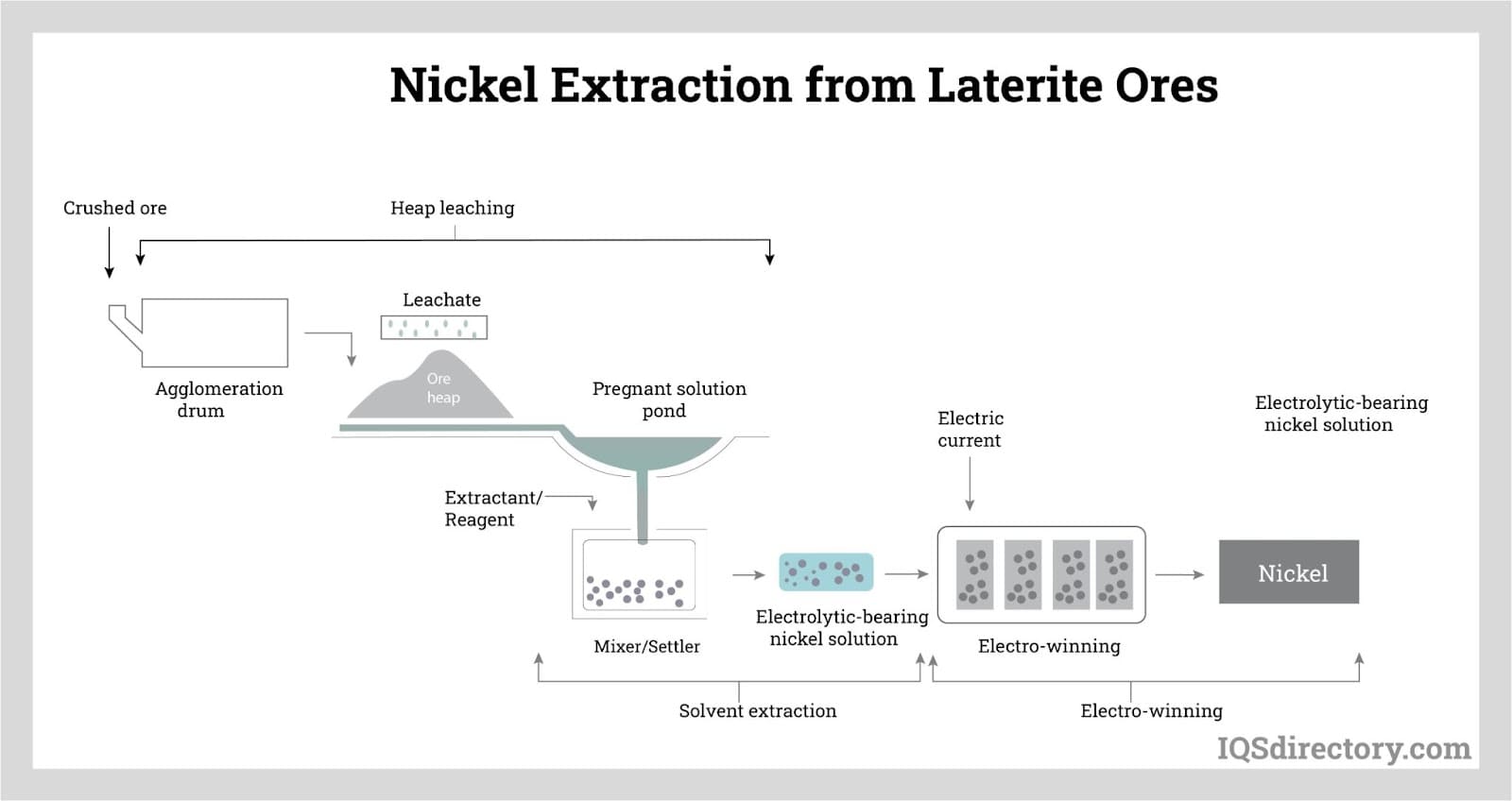
Hastelloy G-30 Sheets
Hastelloy G-30 sheets are made from a high chromium-nickel base alloy. They are also resistant to highly oxidizing acids and phosphoric acids.
Hastelloy B-3 Sheets
Hastelloy B-3 nickel sheets are used in chemical industry because they are resistant to sulphuric acid, hydrochloric acid, and phosphoric acid.
Hastelloy C-276 Sheets
Nickel sheets made from Hastelloy C-276 are also used in the chemical industry because they resist oxidizing agents and are easily fabricated.
Hastelloy X Sheets
Hastelloy X nickel sheets are used to make jet engine components for blades, tailpipes, afterburner sections, ducting, bellows, and honeycomb seals. They are strong and oxidation resistant up to 2200°F.
Haynes 242 Sheets
Haynes 242 nickel sheets are made from a nickel alloy that is perceptible to the age hardening process. Haynes 242 nickel sheets are oxidation resistant, have low thermal expansion, and ductile. Haynes 242 sheets are used in gas turbine engines and chemical processing plants.
Applications and uses of Nickel Sheets
- Nickel sheets are utilized in electronic wiring, sparking electrodes, and heat exchangers.
- Nickel sheets are used in battery components.
- In the oil, gas, and petrochemical industries, nickel sheets are used as an engineering material.
Benefits of Nickel Sheets
- Nickel sheets are corrosion resistant, versatile, and durable.
- Nickel sheets are flexible enough to be fabricated or welded into almost any shape.
- Nickel sheets are resistant to dry fluorine and other corrosive chemicals
Choosing the Correct Nickel Sheet Manufacturer
To ensure you have the most beneficial outcome when purchasing nickel sheets from a nickel sheet manufacturer, it is important to compare several companies using our directory of nickel sheet manufacturers. Each nickel sheet manufacturer has a business profile page highlighting their areas of experience and capabilities, along with a contact form to directly communicate with the manufacturer for more information or request a quote. Review each nickel sheet business website using our patented website previewer to quickly learn what each company specializes in. Then, use our simple RFQ form to communicate with multiple nickel sheet companies with the same form.


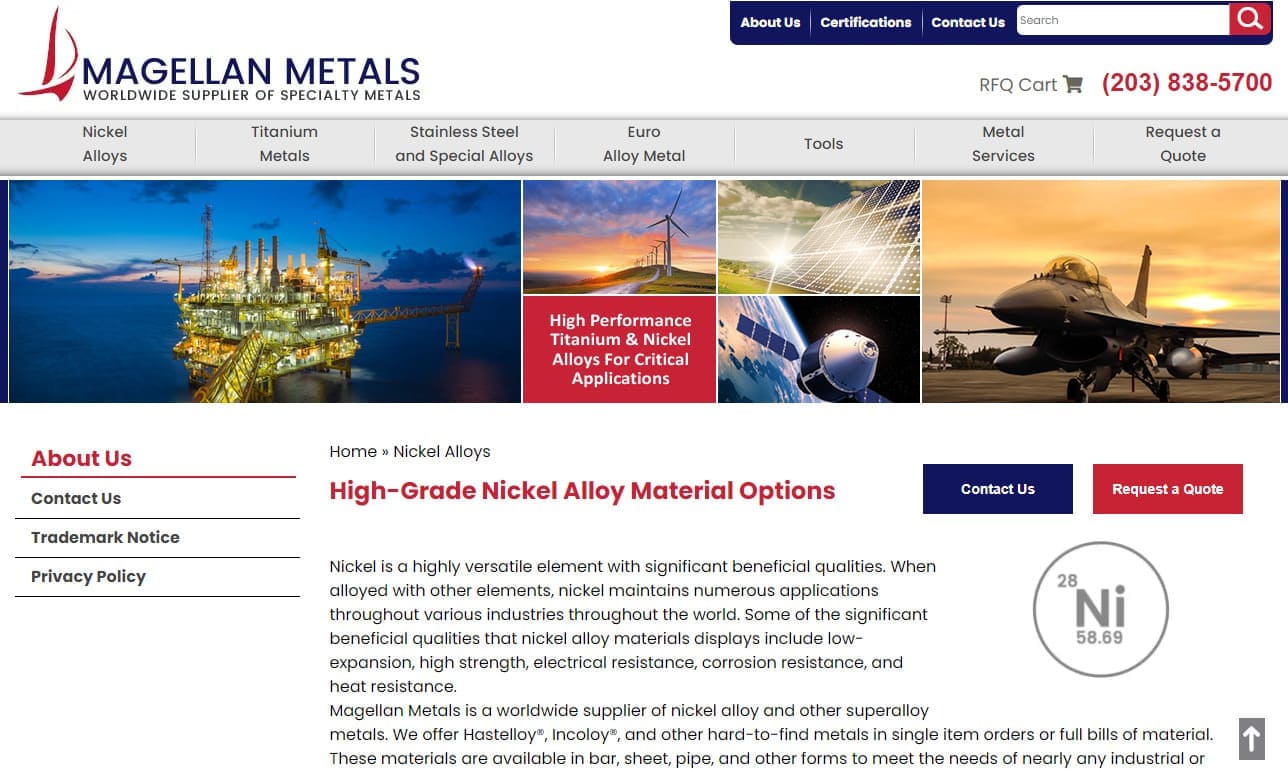
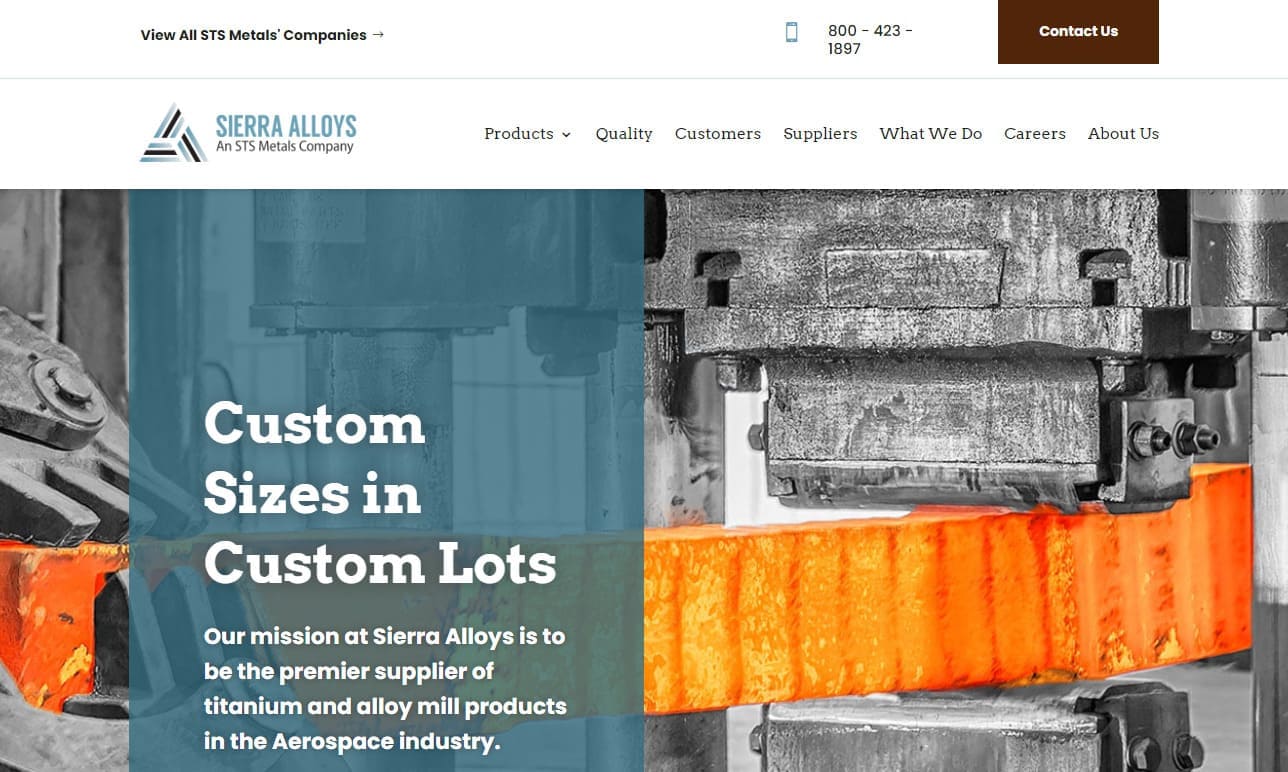
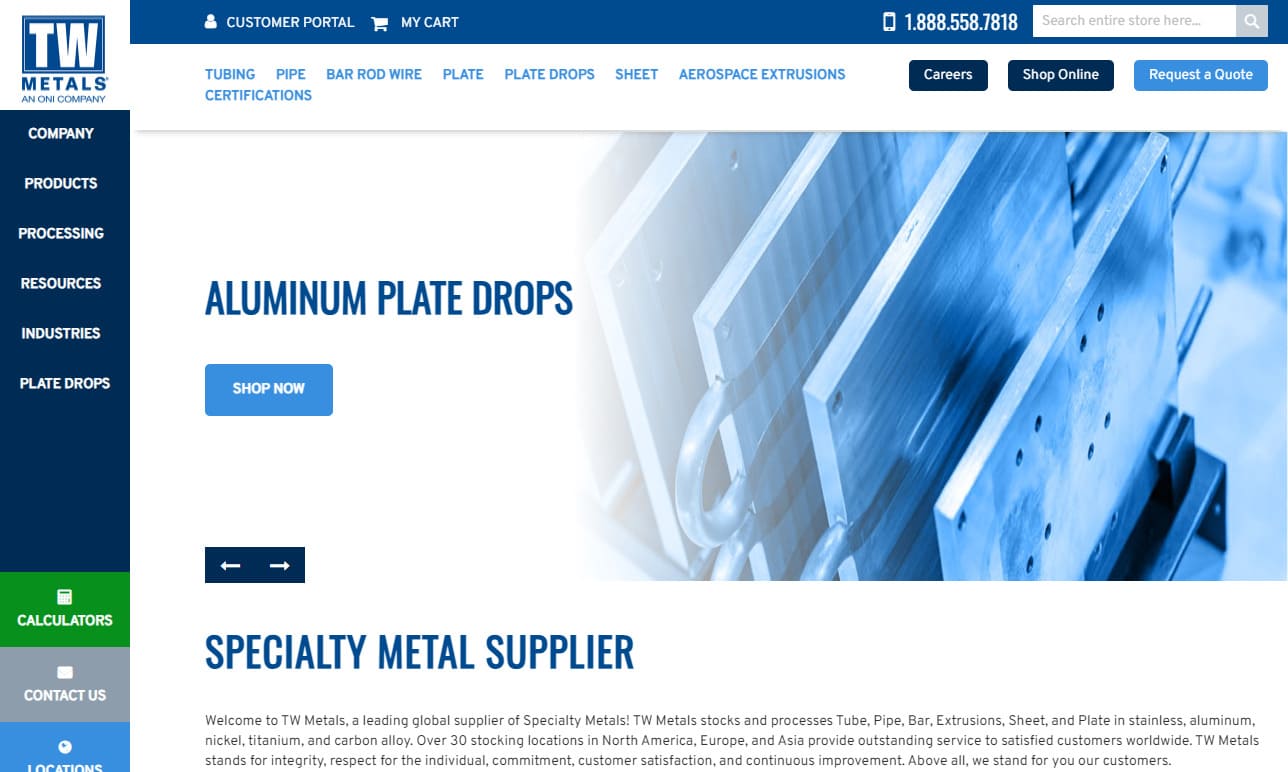
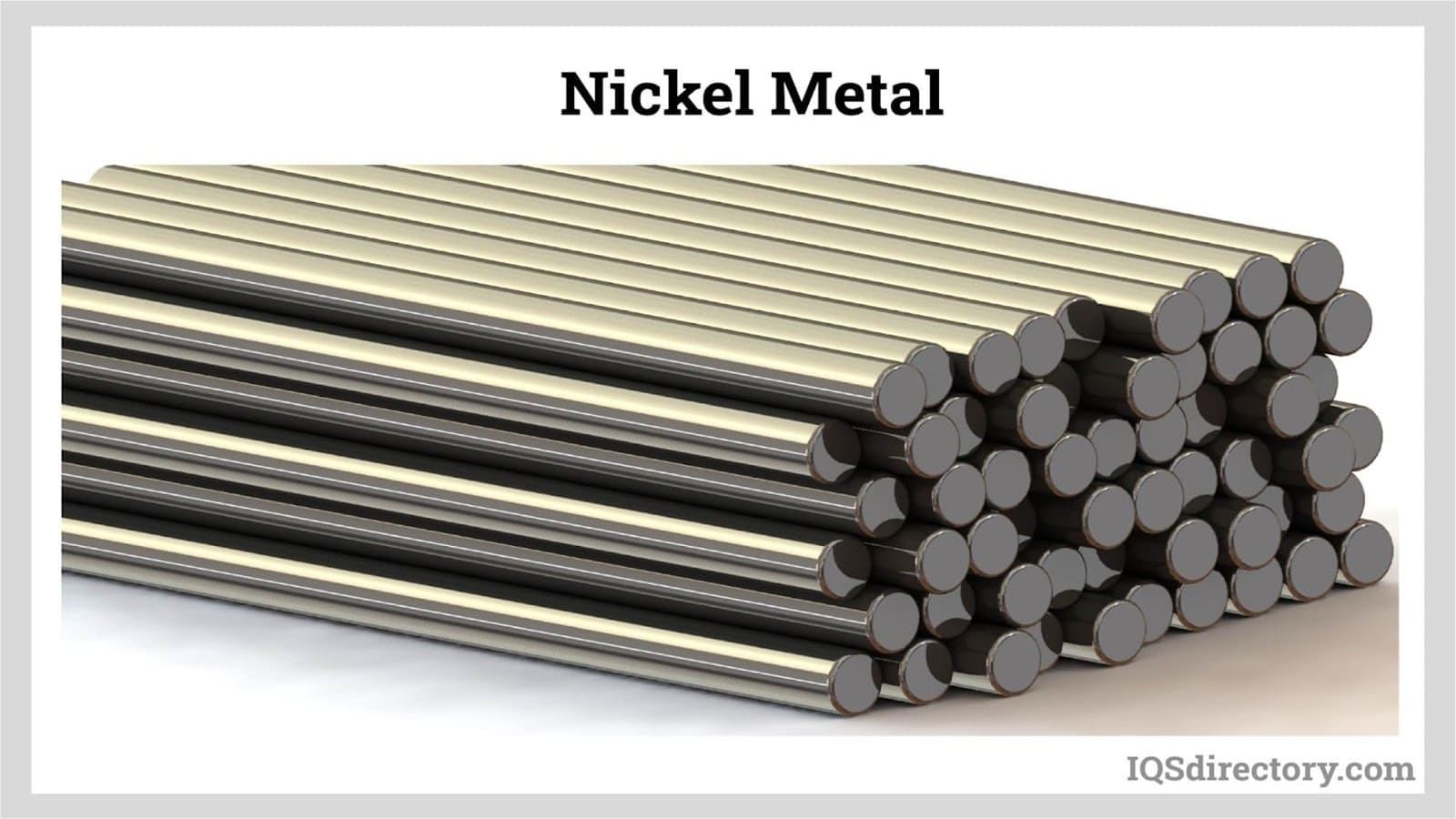
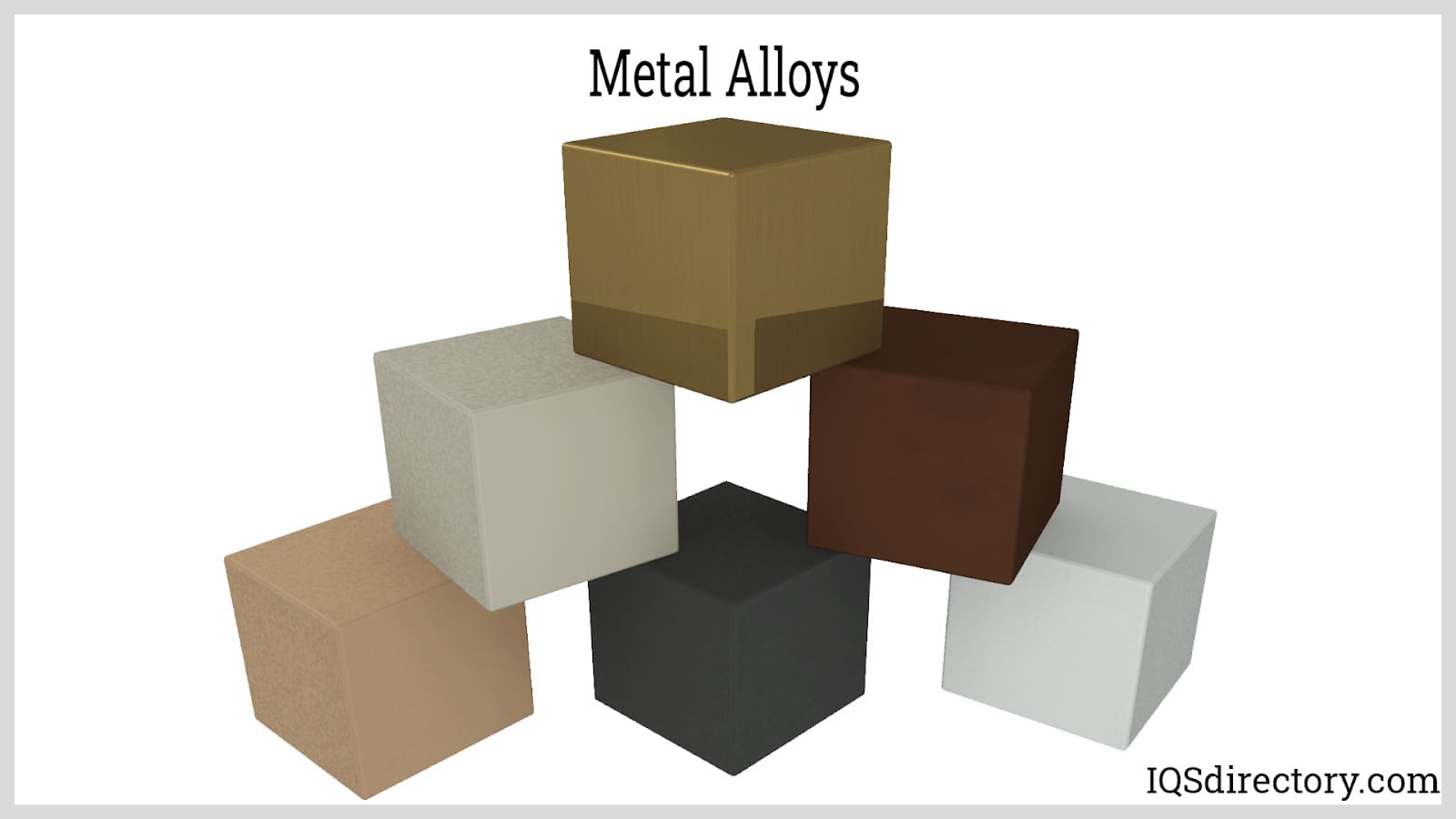
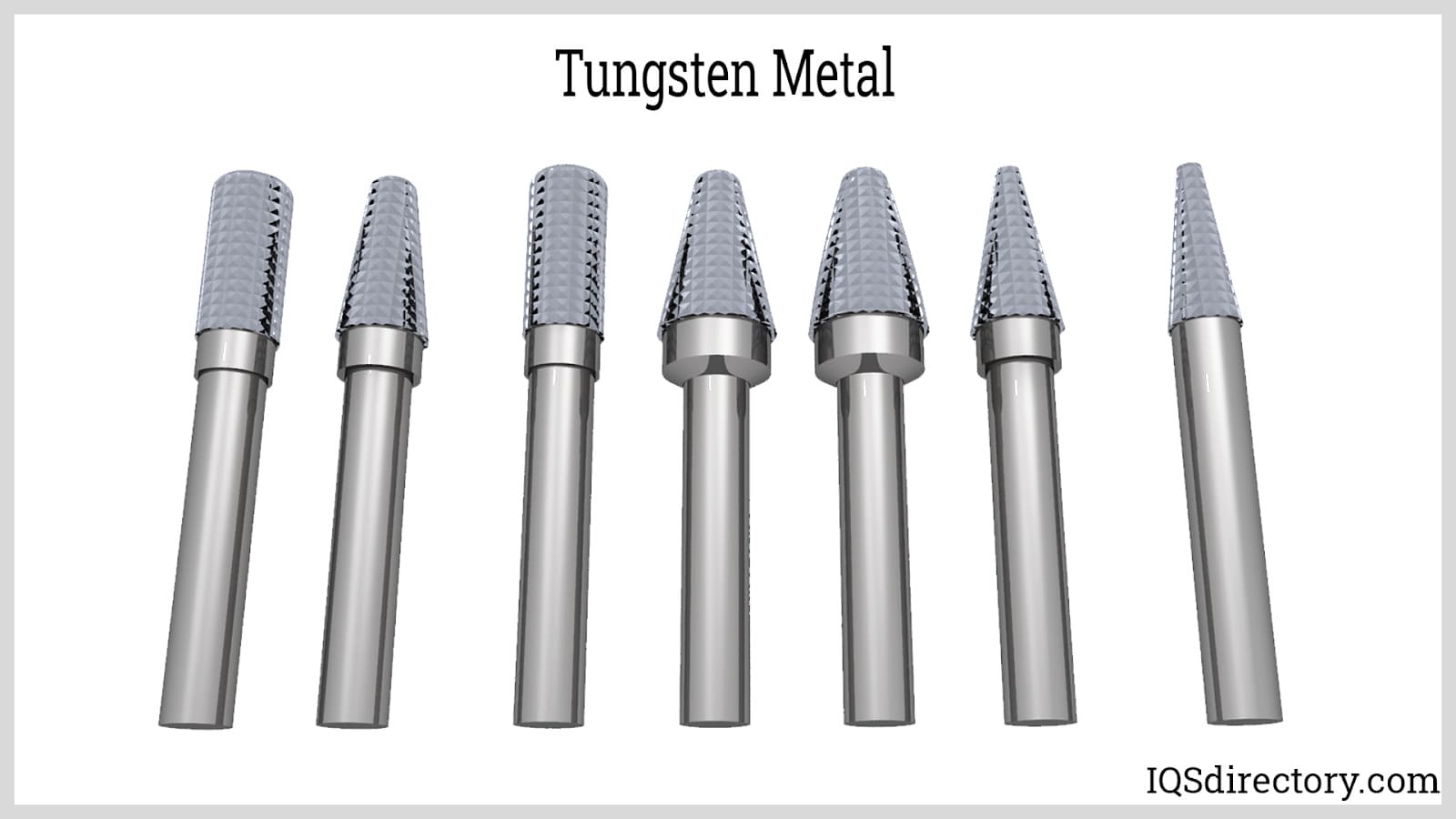



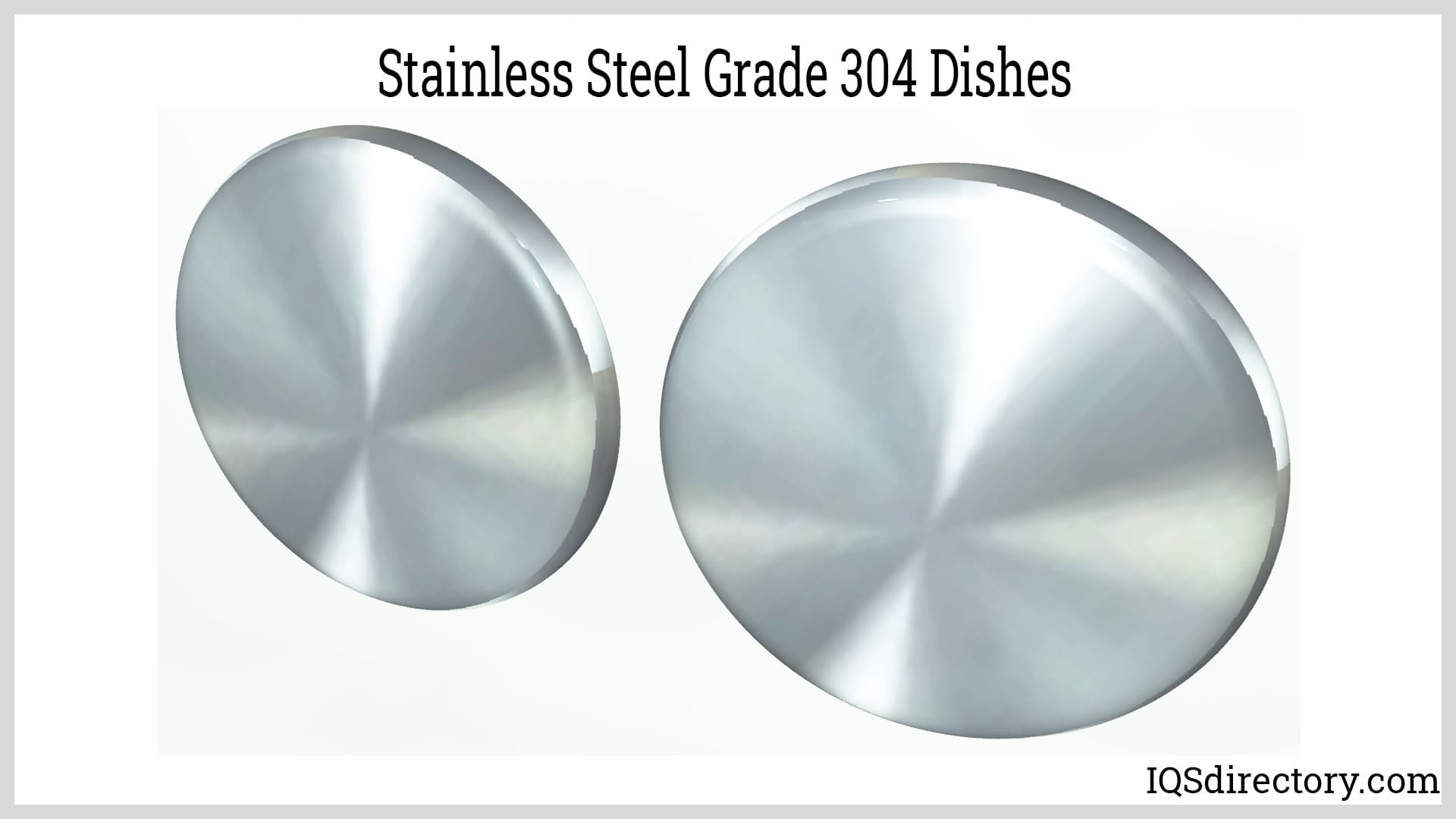
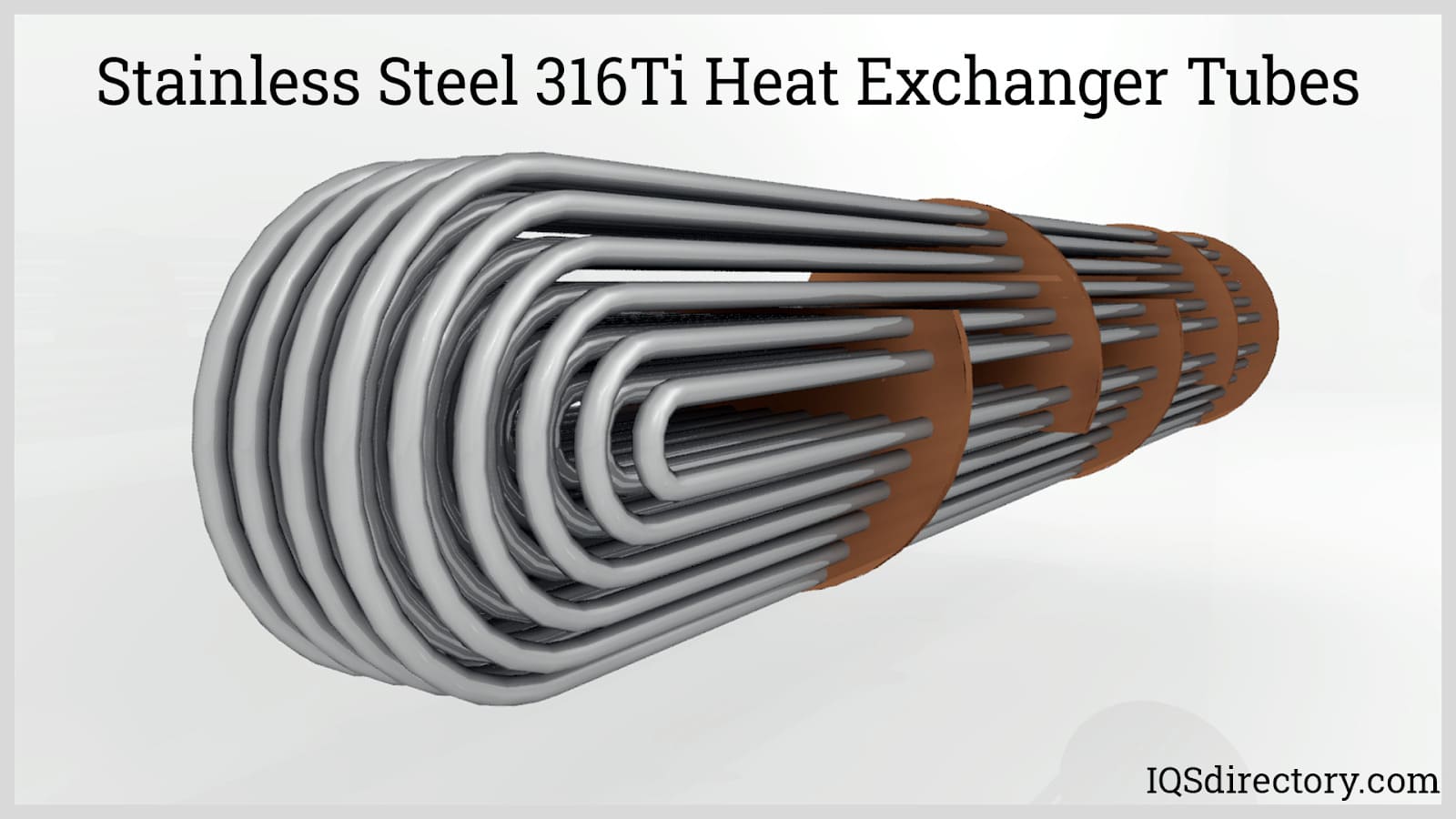

 Alloy Suppliers
Alloy Suppliers Aluminum
Aluminum Aluminum Extrusions
Aluminum Extrusions Copper-Brass-Bronze
Copper-Brass-Bronze Magnets
Magnets Nickel
Nickel Stainless Steel
Stainless Steel Stainless Steel Tubing
Stainless Steel Tubing Steel Service Centers
Steel Service Centers Titanium
Titanium Tungsten
Tungsten Wire Rope
Wire Rope Castings & Forgings
Castings & Forgings Bulk Material Handling
Bulk Material Handling Electrical & Electronic Components
Electrical & Electronic Components Flow Instrumentation
Flow Instrumentation Hardware
Hardware Material Handling Equipment
Material Handling Equipment Metal Cutting Services
Metal Cutting Services Metal Forming Services
Metal Forming Services Metal Suppliers
Metal Suppliers Motion Control Products
Motion Control Products Plant & Facility Equipment
Plant & Facility Equipment Plant & Facility Supplies
Plant & Facility Supplies Plastic Molding Processes
Plastic Molding Processes Pumps & Valves
Pumps & Valves Recycling Equipment
Recycling Equipment Rubber Products & Services
Rubber Products & Services